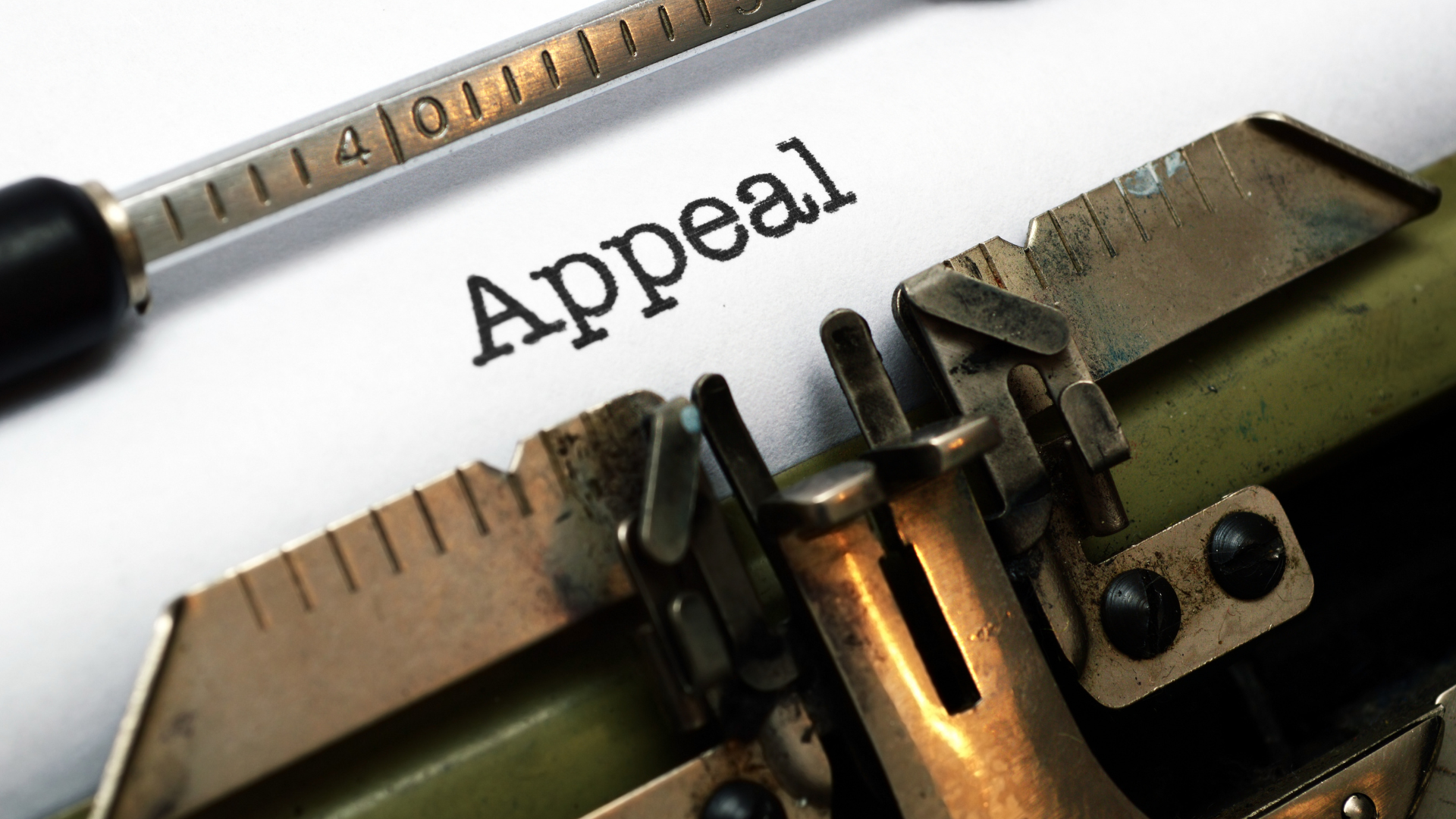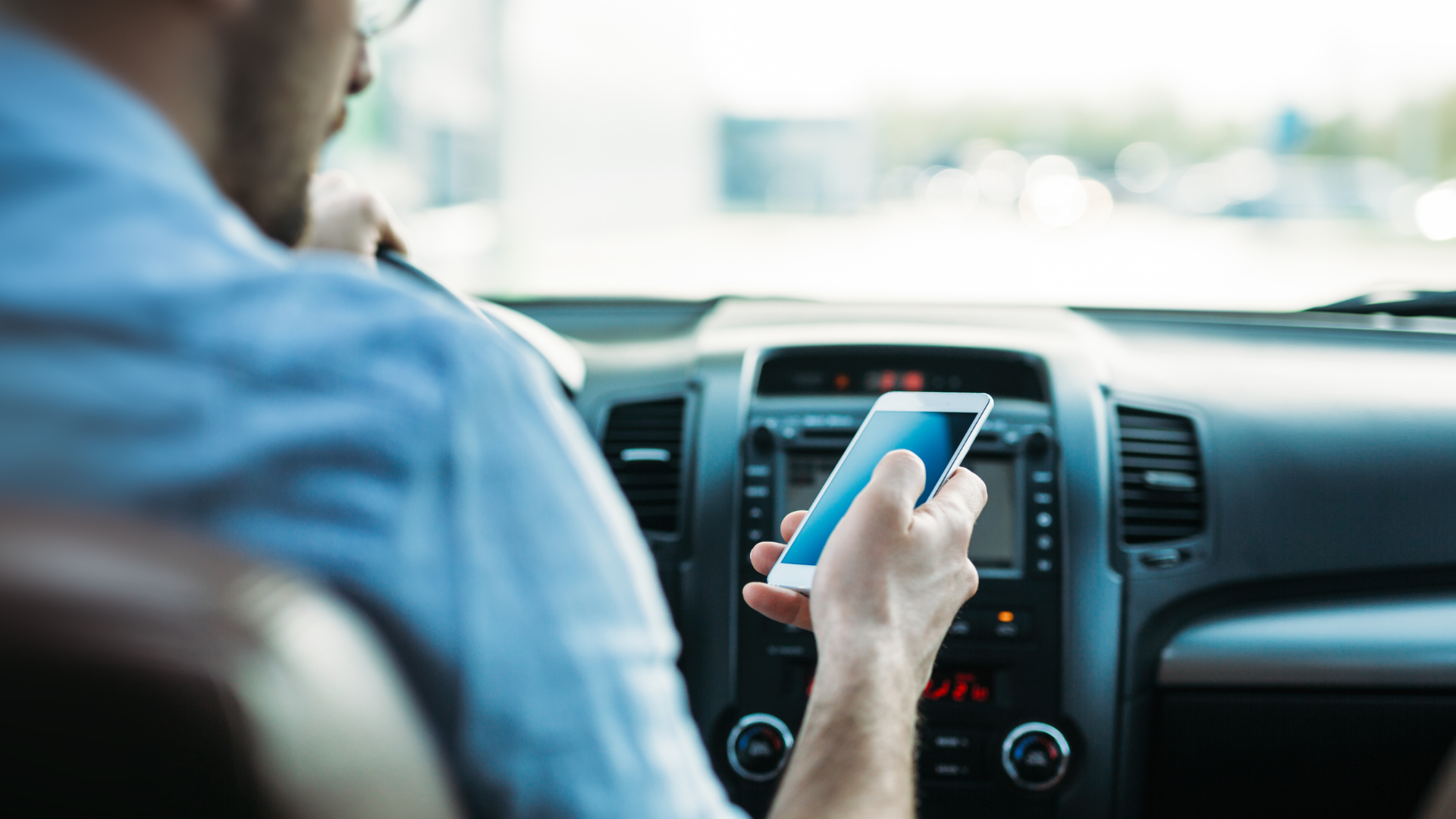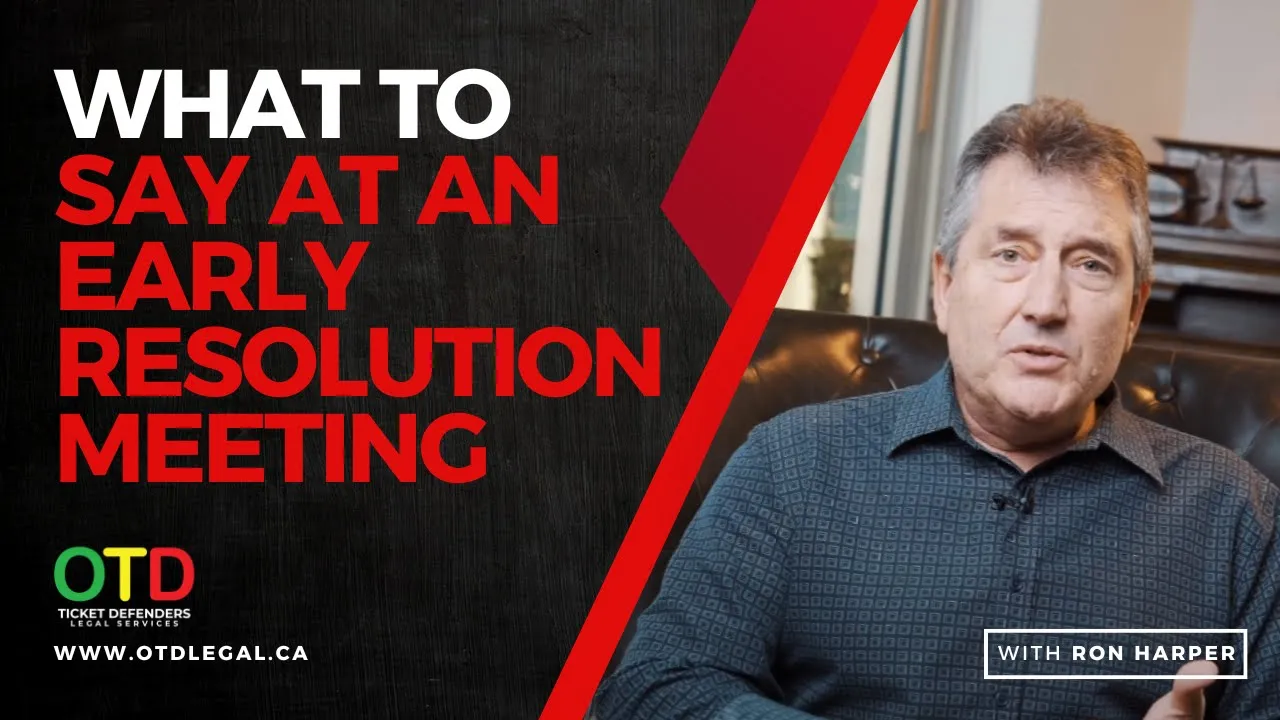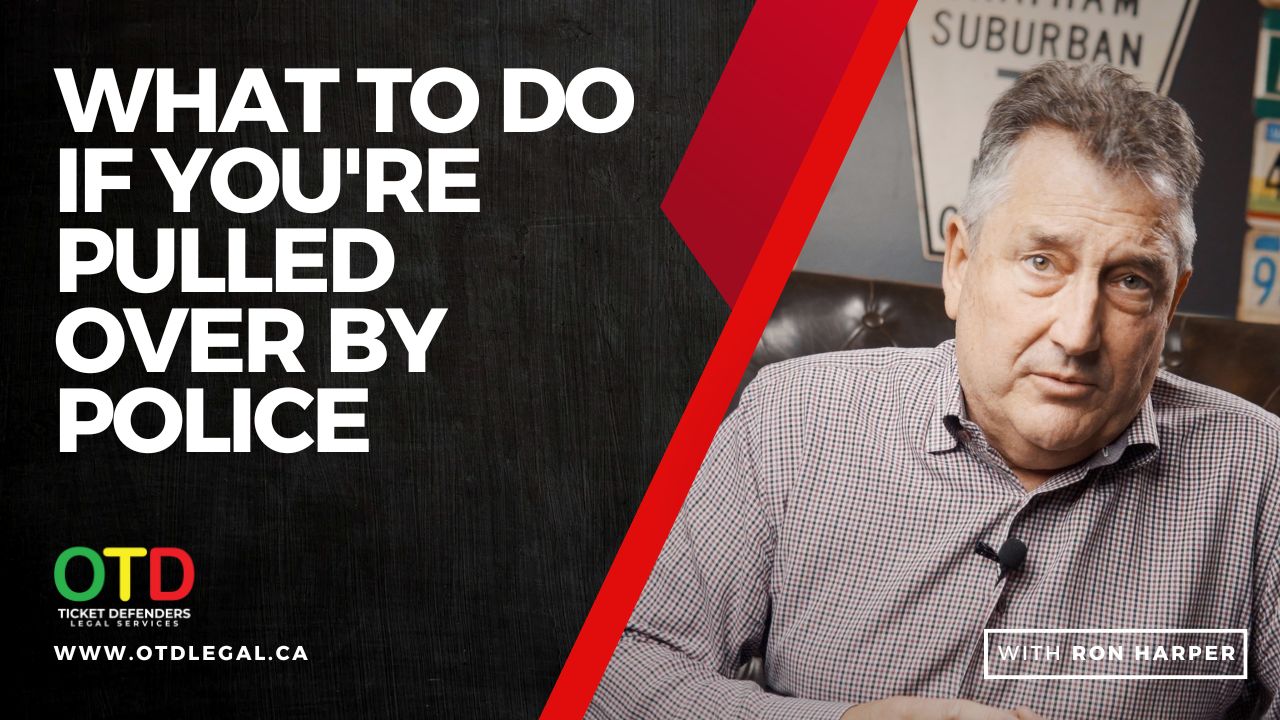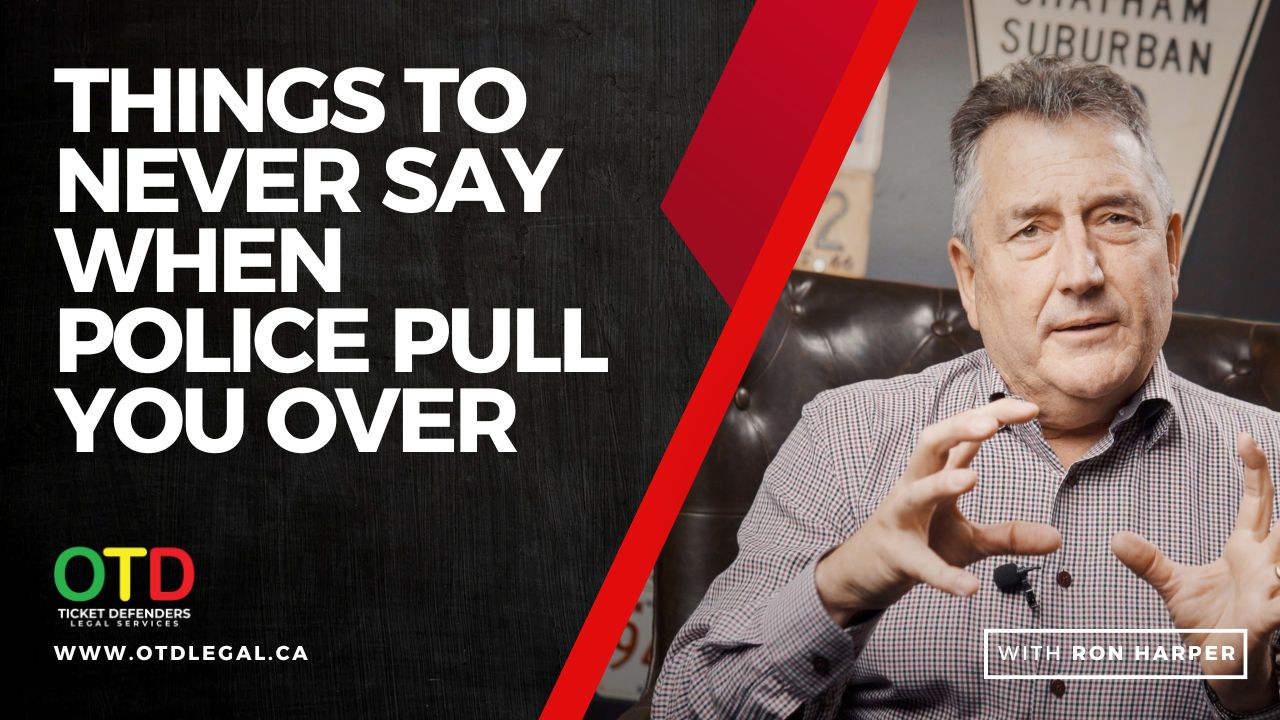If you’ve received a traffic ticket in Ontario, you might be wondering whether your smartphone’s GPS data or phone records can help prove your innocence—while the answer is yes, it’s not that simple.
- GPS data can potentially help fight speeding tickets, but only if you can demonstrate that the data is accurate, reliable, and unaltered.
- Phone records may be useful in distracted driving cases to show you weren’t using your phone at the time of the alleged offence.
- However, digital evidence must meet strict legal standards – it needs to be properly authenticated, thoroughly documented, and presented in a way that satisfies the court.
- Judges are cautious with this kind of evidence and typically require more than screenshots; they expect rigorous, verifiable proof that the information hasn’t been tampered with.
- Successfully using GPS or phone data in court often depends on having knowledgeable legal representation who understands how to navigate these technical and legal challenges.
Bottom line: While GPS and phone records can support your defence, they must be handled with care to stand up in court.
Read on to find out when and how to use digital evidence effectively to fight your Ontario traffic ticket.
Can Technology Actually Help You Beat a Ticket?
Modern smartphones generate an incredible amount of data about our activities – where we go, how fast we travel, when we make calls, and when we send texts. This digital footprint can sometimes provide valuable evidence to dispute traffic violations, but only if it meets the court’s standards for admissible evidence.
When You Might Need Extra Proof
Traffic tickets often come down to one person’s word against another’s – your version of events versus the police officer’s observations. In these situations, additional evidence can be crucial for creating a stronger defence to the charge you are facing.
You might need extra proof when:
- The officer’s visual estimate seems incorrect: If you were charged with speeding based solely on visual estimation, GPS data showing your actual speed could contradict their claim
- Equipment malfunctioned: If you suspect the radar or laser device wasn’t calibrated properly, GPS data could show the discrepancy
- You’re accused of sending text messages or talking on your phone while driving: Phone records showing no calls or texts at the time of the alleged offence could support your defence. It should be noted that simply holding your phone is an offence under the Highway Traffic Act, so this evidence would only be helpful if an officer is specifically accusing you of texting or making a phone call on the device
- Location disputes: GPS data can prove you were on a different road or in a different location than where the officer claims the violation occurred
The key is understanding that this evidence supplements your defence – it rarely stands alone as a complete solution.
What Counts as “Supporting Evidence” in Traffic Court?
Ontario’s Provincial Offences court follows established rules of evidence, similar to other courts. For any evidence to be considered, it must be relevant, authentic, and reliable. This means:
Relevance: The evidence must directly relate to the facts in dispute. GPS showing your speed is relevant to a speeding charge, but your lunch location isn’t.
Authentication: You must prove the evidence is what you claim it is. This means showing that the GPS data actually came from your device and hasn’t been altered.
Reliability: The court needs to trust that the evidence accurately reflects what happened. This is often the biggest hurdle for digital evidence.
For digital evidence specifically, Ontario courts apply principles from the Canada Evidence Act, which requires rigorous evaluation of electronic evidence due to its potential for manipulation.
Using GPS Data to Support Your Case
GPS technology has become remarkably sophisticated, with modern smartphones capable of tracking location, speed, and route information with impressive accuracy. However, using this data effectively in traffic court requires understanding both its strengths and limitations.
How GPS Can Show Your Location, Speed, or Route
Your smartphone’s GPS system continuously logs various types of data that could be relevant to traffic violations:
Speed tracking: Most GPS apps record your speed at regular intervals. Popular navigation apps like Google Maps, Waze, or Apple Maps often store this information, as do fitness tracking apps.
Location logging: GPS data can prove where you were at specific times, potentially contradicting an officer’s claim about the location of an alleged violation.
Route information: Detailed route data can show which roads you travelled and when, potentially supporting your version of events.
Time stamps: GPS data includes precise timing information that can be crucial for establishing when events occurred.
The challenge is that not all GPS data is created equally. Consumer-grade GPS in smartphones typically has accuracy margins that can vary based on satellite reception, urban interference, and other factors.
Examples: Disputing Speeding or Failing to Stop
Speeding charges: If you’re charged with travelling 120 km/h in an 80 km/h zone based on the officer’s visual estimate, GPS data showing you were travelling 85 km/h could create reasonable doubt. However, you’d need to demonstrate that your GPS is accurate and reliable.
Failing to stop at a stop sign: GPS data showing your speed dropped to zero at the intersection could support your claim that you did stop, especially when combined with other evidence.
Wrong location claims: If an officer claims you committed a violation on Highway 401 but your GPS shows you were on Highway 400 at that time, this discrepancy could be significant.
The key is that GPS data works best when it clearly contradicts the officer’s account rather than when the difference is within normal margins of error. This evidence can be used to create reasonable doubt by contradicting the officer’s account of events.
What Kind of GPS Data Holds Up in Court?
Not all GPS data is equally persuasive in court. The court will scrutinize the reliability and accuracy of any electronic evidence. For GPS data to be effective:
Professional-grade systems generally carry more weight than consumer apps. Commercial fleet tracking or dedicated GPS devices often have better accuracy documentation.
Corroborated data is more convincing. If your smartphone GPS matches data from your vehicle’s built-in navigation system or a separate GPS device, this strengthens your case.
Calibration records can be crucial. Just as police radar devices need calibration, you might need to demonstrate that your GPS device provides accurate readings.
Continuous tracking is more reliable than isolated data points. A complete trip record is harder to manipulate than a single speed reading.
The reality is that while GPS data can be helpful, it’s rarely sufficient on its own. Courts understand that consumer GPS has limitations and can be affected by various factors.
Phone Records as Evidence
Distracted driving charges have become increasingly common in Ontario, and phone records can sometimes provide supplemental evidence in defending against these charges.
Proving You Weren’t on the Phone During a Distracted Driving Charge
Ontario’s Highway Traffic Act prohibits holding or using a hand-held wireless communication device while driving. If you’re charged with this offence, your phone records could potentially demonstrate that you weren’t actually using your phone at the time.
Call logs show exactly when calls were made or received, including duration and contact information. If your phone records show no calls during the time period when the officer claims to have observed you on the phone, this creates doubt about their observation.
Text message records include timestamps showing when messages were sent or received. Modern phone bills often include detailed text logs that can prove you weren’t texting while driving. This is also helpful when an officer claims to have observed you sending a text message.
Data usage logs from your phone carrier might show internet activity, which could be relevant if you’re accused of using apps while driving.
The key is obtaining detailed records that cover the specific time period of the alleged violation with enough precision to create reasonable doubt.
Can Text Logs or Call Logs Help?
Text and call logs can be particularly valuable because they provide objective, timestamped evidence of your phone activity. Under the Canada Evidence Act, electronic communications like text messages are generally admissible despite containing hearsay, because they’re considered reliable due to their spontaneous and contemporaneous nature.
However, there are important limitations:
Timing precision: Phone company records might not have the precise minute-by-minute detail needed to definitively prove you weren’t using your phone during a brief traffic stop.
Technical use vs. holding: Ontario’s law prohibits both “holding” and “using” a device. Even if you weren’t actively calling or texting, you could still be charged for simply holding the phone.
Authentication requirements: You’ll need to prove that the phone records are genuine and accurately reflect your phone’s activity.
What About Apps That Track Phone Usage While Driving?
Several apps and phone features track usage patterns and can potentially provide evidence in distracted driving cases:
Screen time tracking: iOS and Android devices include built-in screen time monitoring that shows when apps were used and for how long.
Do not disturb logs: If you use driving mode or do not disturb features, these logs might show your phone was set to driving mode during the alleged violation.
Third-party apps: Apps like Cellcontrol, LifeSaver, or AT&T DriveMode create detailed logs of phone activity while driving.
While this data can be compelling, it faces the same authentication and reliability challenges as other digital evidence. The court needs to trust that the data is accurate and hasn’t been manipulated.
The Catch: GPS and Phone Records Aren’t Always Enough
While digital evidence can be powerful, it’s important to understand its limitations and the challenges you’ll face presenting it effectively in traffic court.
The Need for Proper Documentation or Expert Interpretation
Chain of custody: You need to show how the evidence was obtained and that it hasn’t been tampered with. Screenshots can be easily manipulated, so courts prefer original data files when possible.
Technical understanding: Simply presenting GPS or phone data isn’t enough. You might need to explain how the technology works, its accuracy limitations, and what the data actually shows.
Expert testimony: In complex cases, expert witnesses might be needed to interpret technical data and explain its significance to the court. This adds cost and complexity to your defence.
Corroborating evidence: Digital evidence is most effective when combined with other evidence, such as witness testimony or physical evidence from the scene.
The challenge is that many people underestimate the complexity of presenting digital evidence effectively. What seems straightforward to you might require significant legal and technical preparation for court.
How OTD Legal Can Use This Type of Evidence Effectively
At OTD Legal, we understand both the potential and limitations of digital evidence in traffic court. Our experience handling thousands of traffic cases across Ontario has taught us when and how to use GPS data and phone records effectively.
Evidence evaluation: We can assess whether your digital evidence is likely to be helpful and admissible. Not every case benefits from digital evidence, and we’ll give you honest advice about its potential impact.
Proper authentication: Our team knows the technical and legal requirements for authenticating electronic evidence. We ensure your evidence meets court standards and is presented in the most compelling way possible.
Strategic presentation: Digital evidence is most effective when it’s part of a comprehensive defence strategy. We know how to combine digital evidence with traditional defence techniques for maximum impact.
Technical expertise: When cases require expert interpretation of digital data, we work with qualified experts who can explain complex technical concepts to judges in clear, understandable terms.
Cost-effective approach: We help you understand whether the potential benefits of presenting digital evidence justify the costs involved. Sometimes, simpler defence strategies are more effective and economical.
The key is understanding that successful use of digital evidence requires both technical knowledge and legal experience. OTD Legal combines both to give you the best possible defence.
Frequently Asked Questions
Can I just show the judge a screenshot of my GPS speed to beat a speeding ticket?
Unfortunately, it’s not that simple. While GPS data can be helpful evidence, a basic screenshot won’t meet the court’s requirements for admissible evidence. Courts need proof that the data is authentic, reliable, and hasn’t been manipulated. You’d need to provide documentation about your GPS device’s accuracy, show the complete data file rather than just a screenshot, and potentially explain technical limitations that could affect the readings. Simply showing a screenshot that says you were going 85 km/h when charged with 120 km/h is unlikely to be sufficient on its own.
Will my phone company give me detailed records to fight a distracted driving ticket?
Yes, phone companies can provide detailed call and text logs, but there are important limitations. Most carriers keep records for several months to years, and you can request them for your own account. However, the level of detail varies – some show exact timestamps down to the minute, while others are less precise. Keep in mind that obtaining and presenting these records properly requires understanding authentication requirements, and the records might not cover all types of phone activity. It’s also worth noting that timing precision might not be sufficient if the alleged violation occurred during a brief period.
Is GPS evidence better than radar evidence in speeding cases?
Not necessarily. Police radar and laser devices are specifically designed for speed measurement and undergo regular calibration testing. Consumer GPS devices, while sophisticated, aren’t primarily designed for precise speed measurement and can have accuracy variations based on signal quality, urban interference, and other factors. However, GPS evidence can be valuable for creating reasonable doubt, especially if there are significant discrepancies or if the police equipment wasn’t properly calibrated. The effectiveness really depends on the specific circumstances of your case and how well the evidence is presented.
Technology can be a powerful ally in fighting traffic tickets, but only when used correctly. GPS data and phone records offer exciting possibilities for defending against traffic violations, but they require careful preparation and proper legal presentation to be effective.
If you have digital evidence that you believe could help your traffic ticket defence, don’t try to navigate the complex legal requirements alone. Contact OTD Legal for a free consultation to discuss your case and determine whether your digital evidence can make a meaningful difference in court.


